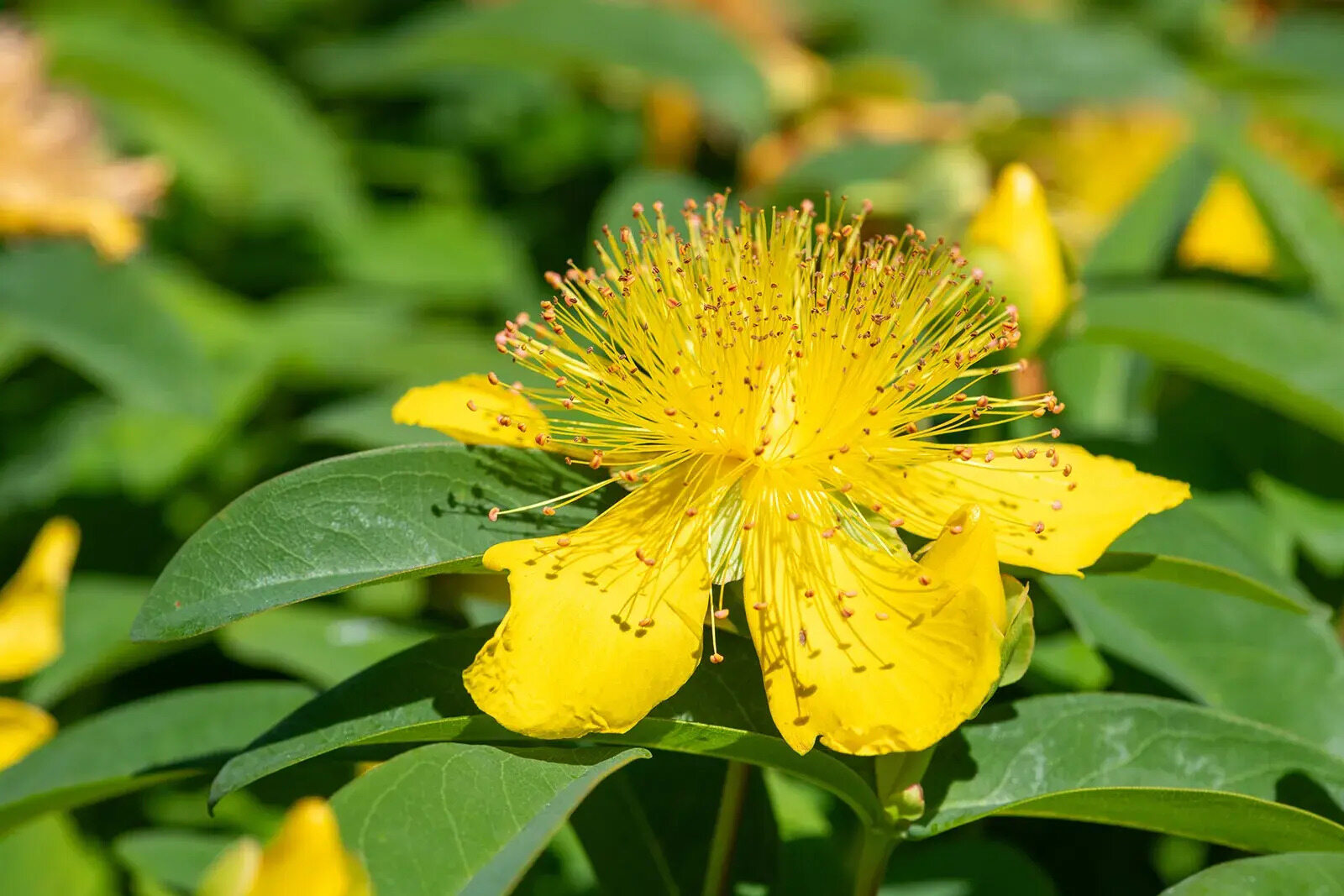
St. John's wort has been used for centuries as a natural remedy. But what makes this plant so special? St. John's wort is known for its bright yellow flowers and its potential to help with mild to moderate depression. This herb contains active compounds like hypericin and hyperforin, which are believed to influence mood-regulating chemicals in the brain. Beyond mental health, St. John's wort has been used to treat wounds, burns, and even nerve pain. However, it's crucial to know that this herb can interact with various medications, making it essential to consult a healthcare provider before use. Curious to learn more? Here are 26 fascinating facts about St. John's wort that will deepen your understanding of this remarkable plant.
What is St. John's Wort?
St. John's wort is a flowering plant known for its medicinal properties. Often used in traditional medicine, this herb has a rich history and numerous applications. Let's dive into some fascinating facts about this remarkable plant.
-
Scientific Name: St. John's wort is scientifically known as Hypericum perforatum.
-
Historical Use: Ancient Greeks used it to treat various ailments, including nervous disorders.
-
Named After a Saint: The plant blooms around June 24th, the feast day of St. John the Baptist, hence the name.
-
Bright Yellow Flowers: The plant is easily recognizable by its bright yellow flowers.
-
Perforated Leaves: The leaves appear perforated when held up to the light due to tiny oil glands.
Medicinal Uses of St. John's Wort
St. John's wort is renowned for its medicinal properties, particularly in treating mental health conditions. Here are some key facts about its uses:
-
Antidepressant Properties: Widely used as a natural remedy for depression.
-
Anxiety Relief: Helps alleviate symptoms of anxiety.
-
Wound Healing: Historically applied to wounds to promote healing.
-
Anti-inflammatory: Contains compounds that reduce inflammation.
-
Antiviral Effects: Shows potential in fighting certain viral infections.
How St. John's Wort Works
Understanding how St. John's wort works can shed light on its effectiveness. Here are some insights:
-
Serotonin Boost: Increases serotonin levels in the brain, improving mood.
-
Inhibits Reuptake: Prevents the reuptake of neurotransmitters like dopamine and norepinephrine.
-
Hypericin and Hyperforin: These active compounds are believed to be responsible for its antidepressant effects.
-
Antioxidant Properties: Helps protect cells from damage caused by free radicals.
-
Modulates Immune System: Can influence the immune system's response.
Potential Side Effects and Interactions
While beneficial, St. John's wort can have side effects and interact with other medications. Here are some important considerations:
-
Photosensitivity: Can make skin more sensitive to sunlight.
-
Drug Interactions: Interacts with various medications, including antidepressants and birth control pills.
-
Allergic Reactions: Some people may experience allergic reactions.
-
Gastrointestinal Issues: Can cause stomach upset in some individuals.
-
Not for Pregnant Women: Should be avoided during pregnancy due to potential risks.
Growing St. John's Wort
For those interested in cultivating this plant, here are some tips:
-
Easy to Grow: Thrives in well-drained soil and full sun.
-
Perennial Plant: Comes back year after year once established.
-
Drought Tolerant: Can withstand periods of drought.
-
Pest Resistant: Generally resistant to pests and diseases.
-
Propagation: Can be propagated from seeds, cuttings, or division.
Fun Facts About St. John's Wort
Let's wrap up with some fun and lesser-known facts about this versatile plant:
- Used in Magic: Historically used in various magical rituals and believed to ward off evil spirits.
The Final Word on St. John's Wort
St. John's wort is more than just a pretty yellow flower. This plant has a long history of being used for its medicinal properties. From helping with mild depression to wound healing, it's been a go-to remedy for centuries. However, it’s not without its cautions. Interactions with other medications can be serious, so always consult a healthcare provider before starting any new supplement.
Knowing these 26 facts about St. John's wort can help you make an informed decision. Whether you're considering it for its mental health benefits or its anti-inflammatory properties, understanding its uses and risks is crucial. This plant has stood the test of time, but modern science continues to study its full potential. Stay informed, stay safe, and always prioritize your health.
Was this page helpful?
Our commitment to delivering trustworthy and engaging content is at the heart of what we do. Each fact on our site is contributed by real users like you, bringing a wealth of diverse insights and information. To ensure the highest standards of accuracy and reliability, our dedicated editors meticulously review each submission. This process guarantees that the facts we share are not only fascinating but also credible. Trust in our commitment to quality and authenticity as you explore and learn with us.
